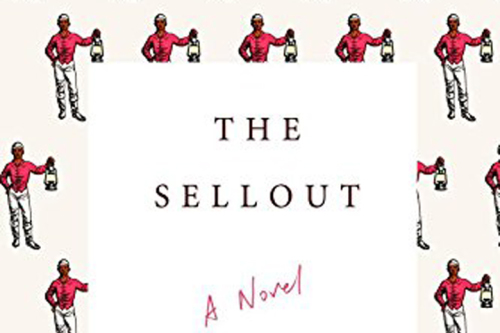“‘When does shit ever end?’
‘It doesn’t'” (Beatty 257).
I decided to give myself a small Christmas present this year in the form of reading a book that is not from a class or directly connected to my research. After some trepidation about what to read, I settled on Paul Beatty’s The Sellout, as I felt I had to honor my country’s first Man Booker Prize recipient. Coincidentally, as a book that fits squarely into the canon of African-American literature (or at least, as much as anything can fit in a “canon”), it does have some relevance to my thesis.
But I promise that was an accident.
The book has been widely lauded as a satire, but I might venture to refer to it as a work of Magical Realism. The plot, to make a molehill out of a mountain, follows a protagonist only named as “Me” or “Bonbon” as he attempts to have his hometown of Dickens put back on the map (literally) after zoning changes swept the primarily black and Latino community under the rug. Our humble narrator ultimately ends up before the Supreme Court after attempting to reinstate segregation in the process. Before I offer any more details about the book or a critical review thereof, please let me emphasize, this is a very funny book.
In fairness, there are points at which, even given the books satirical or fantastical world, the plot doesn’t make a lot of sense. However, I wouldn’t call that a failure. The book is both one of the most logical, and disorienting texts I’ve ever read. The most obvious point of comparison I could offer to it is Ralph Ellison’s Invisible Man, a book that also works just outside the realm of realism. Everything that forces the reader out of the world of the book, be it the inexplicable horse ranches in the hood or the bloody cattle castration for the local school’s career day, only bring you further into the reality of the lived experiences of the characters and, I would go so far as to say, the cognitive dissonance of anyone living in a country that pats itself on the back for being the land of opportunity, while still failing to admit to its inherent inequalities.
While the book is obviously interested primarily in questions of race, I do think it could just as easily be read as an interrogation of how societal reality is perceived in a modern-day commercialized country. At one point, after a discussion about representation in automobile commercials, the protagonist thinks to himself, “the only thing you absolutely never see in car commercials isn’t Jewish people, homosexuals, or urban Negroes, it’s traffic” (139). The book never takes the easy way out, simply implying that racism, inequality, and oppression are purely the results of hatred and bigotry (even if they are still present forces) but that they are also the results of the push to achieve some kind of ideal reality, a reality probably most aptly referred to as The American Dream. It is easy to clear a stretch of highway and convince people that with the right car all doors are open, but The Sellout is about the the traffic pile-up on either side of that commercial shot. It is a book about the difference between reality as it is lived, as it is written about and reported, and how it is perceived, because at the end of the book you have to ask yourself, did the protagonist segregate his hometown, or just put up signs acknowledging the segregation that was already there, just outside the view of the commercial camera.
To come “full circle” as they say, one of the primary concerns of the book is the impossibility of closure (as is indicated in my epithet). One thing that so impressed me about The Sellout was how this played out an a personal level through the protagonist’s relationship with his father, a Psychology professor with a propensity for bringing his research home whose death at the hands of the local police force help catalyze much of the action of the book. Whereas most satires are high on wit and low on heart, I felt Beatty succeeded immensely at making this a book about the protagonist making sense of his grief (even if it is a grief that is never overtly stated) and coming to terms with his problematic upbringing as the ultimate social science experiment. On a more social/political level, the book questions the impulse for closure, whether it comes through reparations for past injustice or though pretending that injustice never happened. I use the word questions here quite deliberately, because the book is first and foremost a send-up of the idea that there are easy answers because, simply put, the shit doesn’t end.
Works Cited
Beatty, Paul. The Sellout. Oneworld, 2016.
